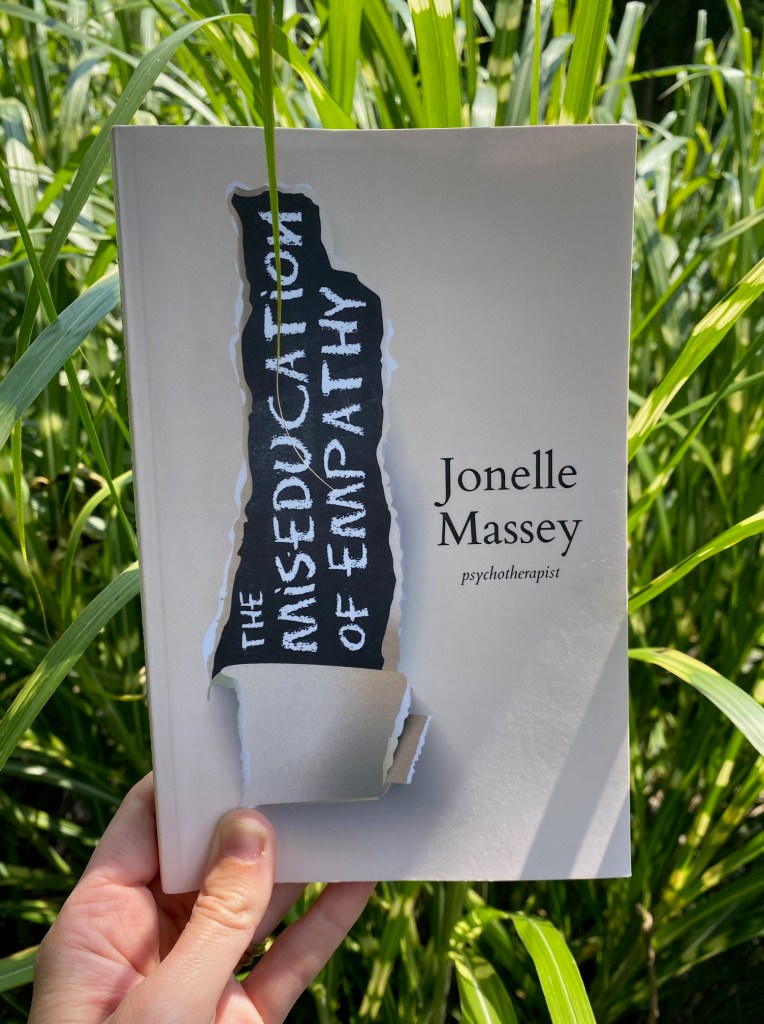STOP what you are doing right now and go buy “The Miseducation of Empathy” or request it from your local library. If your local library does not have a copy, I will encourage you to request that they purchase a copy for the library.
Empathy.
We keep hearing this word. We see it on billboards, in commercials, in children’s books and all over social media. It has to be more than a buzz word and it isn’t going away any time soon.
Jonelle Massey does an outstanding job explaining what empathy is and how we can shift our mindset in order to see real changes in our society. She weaves in her own life stories to share the mistakes she has made which allows the reader to appreciate her words even more. She does not preach at you but rather it feels as if you are sitting down for coffee with an old friend and having a conversation. Mrs. Massey explains that, “Empathy is understanding why a person feels the way they do. Empathy is a learned behavior.”
How many times have you heard the phrase, “Put yourself in their shoes.” She explains that there are some children who are unable to imagine life in another persons shoes based on their own personal life experiences at a certain point. Rather she encourages us to redefine empathy by asking us to “stay in our own shoes” and use the ABC’s of empathy.
A – Acknowledging humanity
The good, the bad and the ugly. Acknowledge what a person is saying and see them for all that they are, not only the good and not only the bad, but for each part.
B – Bypass your feelings in order to validate others
No one likes a “one upper” or someone who listens to your concern and follows it with, “Well at least it isn’t ____.” Leave your own feelings be and listen to the person talking.
C – Connect beliefs
A person’s beliefs have a big impact on why they have the feelings they have. By taking time to understand a person’s beliefs and validating them, you are working on better understanding that person.
I also love how Mrs. Massey breaks down different personality types and how those specific personalities show empathy. She discusses The Cheerleader, The Blanket, The Operator, The Fixer-Upper and The Crossing Guard. For her excellent examples and breakdowns, you will have to read her book. It is such a beautiful section and allows time for self-reflection.
Below are five of my favorite quotes from her book:
*”Real empathy crosses all boundaries – gender, race, religion, politics. And real empathy even opens up the door for you to be empathetic to yourself.”
*”Fear of association leads to alienation, the antonym of empathy.”
*”Pride obstructs the pathway toward empathy.”
*”If we become dismissive about a child with a seeming inability to connect with other students, we condemn them to be labeled as selfish and unempathetic without investigating their thoughts beneath their behaviors, we teach children there is something wrong with them if they can’t execute the traditional definition of empathy, and we miss an opportunity to model empathy ourselves.”
*”What if teachers led with calling out thoughts and experiences instead? (instead of feelings) What if we didn’t impose an expectation on children to feel one another’s feelings, or to preempt each other’s reactions.”
I highly encourage all teachers, counselors, parents, caregivers to get your hands on a copy of this book. Now more than ever, we need to see and feel real empathy. More importantly, we need to teach our children and students how to be empathetic towards one another.
As always, thank you for reading. Wishing you a wonderful day!

By: Jonelle Massey
Thanks so much for sharing this book, Christina, From your description, I love the way the author thoughtfully lays out the foundation for empathy. I particularly appreciate how she mentions that “Empathy is a learned behavior.” As a psychologist, I work hard to get this message across to parents, who are role models of these behaviors for their children. And, if we think about it, it’s the responsibility of all adults. Even in a chance encounter, children watch and learn from how we behave. This is definitely a book that belongs on everyone’s bookshelf.
LikeLiked by 1 person
This so I nds like it should be on Everyone’s reading list! Thank you for the excellent post.
LikeLiked by 1 person